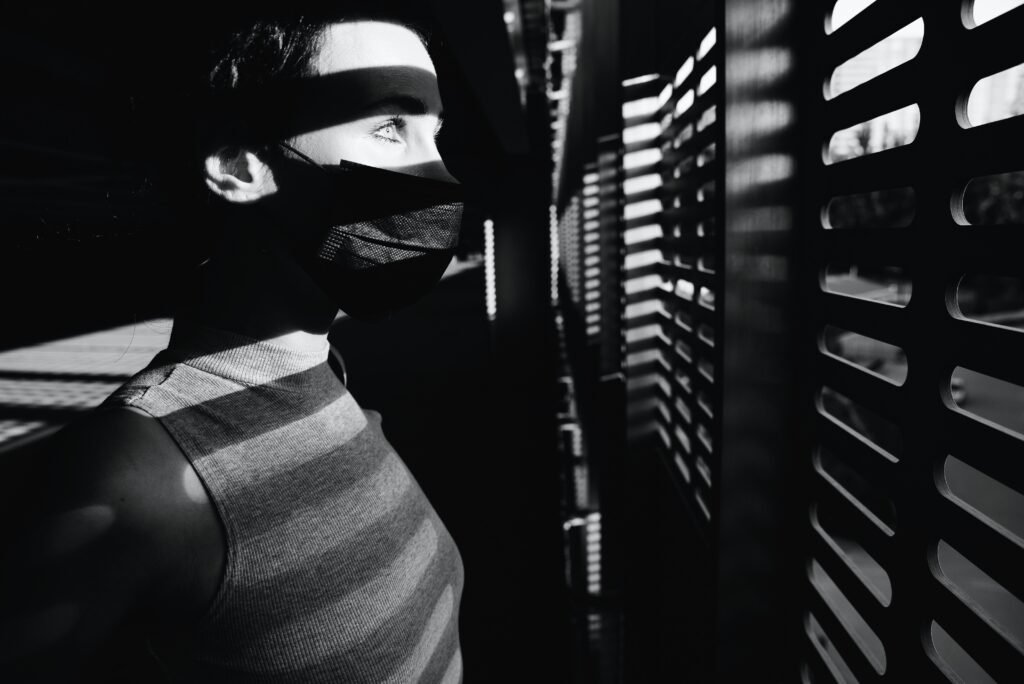
My mother-in-law is a physically beautiful, and sometimes emotionally complex woman.
I should also mention, she’s not technically my mother-in-law. She’s my boyfriend’s mom. I’m not married. But, in many Spanish speaking countries, the word for mother-in-law, suegra, is used to describe the mother of your partner whether you are married or just in a relationship. So I think of her as my suegra, and if I translate it to English, my mother-in-law.
This distinction might be what once caused a student of mine in Ecuador to confuse the English word and call his mother-in-law, his “mother-in-love.”
I couldn’t bring myself to correct him; that is a far superior term.
So perhaps I should refer to Nancy as my mother-in-love instead of my mother-in-law because we are not bound by the law, but rather by love, something far more powerful and annoying.
Of course, it wasn’t always that way.
Indeed, at our first meeting, the looks and comments that I received from Nancy might be more accurately described as hatred. Or at least that’s how I experienced them. I later realized that she did not hate me, but she felt that I might take something very precious from her.
Fede and I were in our own little world in the first few months of our relationship. We ignored texts, shirked responsibilities, blew off appointments.
We were even, shamefully, late when we showed up to a restaurant so that I could meet Nancy for the first time.
The first time I saw her, she sat alone with a clenched jaw, perfectly manicured nails drumming on the table. I showed up with a big smile, hoping to charm her, and foolishly sure that she would be thrilled to meet her son’s girlfriend.
I was met instead with a cold glare. When I spoke to her, she furrowed her brow and turned to Fede to tell him that she didn’t understand my accented Spanish. When I told stories or asked her questions, she would simply frown at me with no response, or grimace down at her menu before opening her eyes widely with a defeated sigh, as if to say “Okay?”
She chewed us out for being late, saying that we were disrespectful. We apologized, and drudged through the conversation, until we finished the meal, and I realized she was crying.
Not knowing what to do, I asked if she wanted to get ice cream, do something else, or call it a day. But she had already stood, and when I asked, she walked away. Fede, already angry and embarrassed, called after her and said, “She asked you a question.”
They proceeded to argue in Spanish that was too fast for me to understand, while I remained stiff in my seat. I heard Fede say, “Speak to her. Look her in the eye and speak to her.”
So she raised her teary eyes to mine and simply said, “There is a lot you don’t understand.” Then she left.
I exhaled and said, “Whoo!” Then laughed awkwardly. It couldn’t have gone worse. Fede was terribly apologetic, but I wasn’t quite so concerned. Fede and I had only first started seeing each other, and I still didn’t fully comprehend that his mother would be a prominent figure in my life. So I put my hand on his face, which had become pale with shame. “She’ll come around,” I offered, with a pat to his cheek, almost certain that she would not.
Six months later, Fede and I were talking about moving in with one another.
My relationship with Nancy was still tense, but she had a funny way of expressing it. She could rip your head off at 8 AM and give you the silent treatment from eight to noon only to pull an orange out of her bag, peel it for you, and hand it to you at lunch time.
I could tell she was making an effort, inviting me to coffee, helping me find new glasses that fit my prescription. But many times, once I showed up for an outing, she would remember how annoyed she was by my existence and the conversation would again feel like walking on cracking ice. Admittedly, Nancy wasn’t the only jealous one, and we both became competitive with one another, looking for areas to disagree or one-up each other.
“Why do you walk like that? Stick your butt out.” She once reminded me, demonstrating how she marched with her head raised. When my nails were undone or chipped, she would slowly reach over and fold them in so no one would see.
“You’re a pretty girl,” she liked to remind me, “There is no reason for you to be walking around with a dirty backpack and clothes that don’t match.”
She once found Fede trying to teach me to dance and she burst out laughing, which kept me from dancing for a while (although, to be fair, it probably was pretty funny watching me try to shake my ass).
When I was alone with Fede, I complained about her, and he would defend her. When she was alone with Fede, she complained about me and he would defend me. It bothered her that I didn’t know how to cook or clean well. She warned Fede that a man needs to a choose a powerful woman in this life, one who would fight alongside him, and I was not that.
She believed this, mostly likely, because I didn’t fight back with her. I let her walk all over me, and instead I would ask Fede to talk to her when I became frustrated and upset. The idea that I would even be expected to fight with my boyfriend’s mom was foreign to me, so time and time again I failed to rise to the occasion when I should have been defending myself.
With this dynamic, we thought moving in together would be a fine idea.
But let me explain.
At this point, the Argentine inflation crisis was already off the rails, and Fede and I had both left our in-person jobs to work online so that we could earn in US dollars. Because we were working remotely, we figured we could stay at his place and save up for a few months, then move to the United States to visit my family. Besides, Fede’s mom traveled for work all the time. We would hardly ever see her.
“This is a bad idea,” a close friend of mine warned me. “I mean, who wants to live with their mother-in-law?”
“Don’t worry. I’ll be back in the US in two months,” I promised, in January of 2020.
I think a lot of us remember a specific moment, a specific day when the world changed in 2020.
For me, it was a Friday, March 13th. Through traveling, we had friends in various parts of the world, and although Argentina hadn’t entered entirely in panic yet, I was watching Instagram stories from friends in Europe recording empty supermarkets. My heart sank.
“That’s gonna happen here,” I said to Fede, realizing out loud. Nancy was traveling for work so she wasn’t around. We hopped on the motorcycle to go to a grocery store, but we were greeted with an empty highway. We sped past wholesale stores, our helmeted heads turning to watch the lines of people stocking up for the apocalypse.
It was too late.
Panic had sunk in, and we were part of it. We managed to stock up on canned foods and soaps, then we went home and turned on the TV and watched Italians singing on balconies for the rest of the day. The next morning, Nancy arrived with her bags, her trip cut short by a virus we didn’t yet understand.
Argentina had the world’s longest lockdown. And it wasn’t a suggested lockdown, or even just a shutting down of businesses. Business certainly did shut down, but beyond that, you could not leave your house. You were allowed a three-block radius to buy groceries, and if you went beyond that boundary, you would be subject to fines.
I had never seen so many police officers in my life. The streets were empty aside from police in military gear. I lived in fear of them, because I was in Argentina on a tourist visa that had since expired, and I had heard stories about friends of friends being caught outside and later being deported.

Fede and I once tried to sit down on a curb outside our house, when two soldiers approached us.
“Where do you two live?” They asked. We gestured to our apartment building.
Then they told us to come with them.
Fede froze, but by some bizarre turn of fate, I misunderstood their Argentine accents through their masks, and instead of hearing “Vengan para acá,” or, “Come here,” I heard, “Vayan para allá,” or “Go there” as in, “Go back to your house.” So I stood up and walked home quickly, and Fede, empowered by my brazenness, followed me with similar confidence. I suppose they figured we didn’t understand, and they just let us go.
Highways and public transport shut down, meaning there were no international flights. Many of my friends were able to go back to their comfort zones, but I was far away and with no opportunities to leave. The embassy was offering emergency flights, but I didn’t want to leave without Fede, unsure of when we would ever see each other again.
But the decision to stay in Argentina tore me up inside. My homesickness and fear for my family’s health became like a dark presence in the apartment, always there, only sometimes successfully ignored. A few members of my family went in and out of quarantine, and I was baffled by the handling of the pandemic in my home country. While I could get fined for not wearing a mask in Argentina, there were people refusing to wear masks in the states. While I was being sent home by soldiers, my family was able to have outdoor gatherings, causing me both envy and fear.

The United States was all over the news. One hundred thousand dead. Two hundred thousand. My grandmother‘s dementia was getting very bad, and she needed help but we weren’t sure how to get it to her, or if it was safe to even visit her.
Because the seasons are flipped in the southern hemisphere, COVID blazed through the United States in the summer heat, while our reality in Buenos Aires grew colder every day. Our hot water heater broke, and no one was willing to come into the house to fix it, so we showered in the cold. I often, truthfully, didn’t shower at all.
Our apartment had one bedroom, where Nancy slept. Fede and I stayed in a wooden bed that he built in the living room/ dining room. We began to argue. Fights about our living situation, fights about Nancy. Whenever I got boiling mad, I would go sit in the bathroom with the toilet lid down to get some privacy. Once I went out on the balcony to get a breather and I realized it was the first time I smelled outside air in weeks.

I began to witness Nancy’s moods. Some days, she would wake up excited to be alive and others she would wake up in pain, and have trouble getting out of bed. She became more bothered than ever about my ignorance of domestic tasks.
Nancy is hyperactive like her son, and sometimes she would get so frustrated with the way I was cooking that she would take the tools out of my hands and do it herself. This drove me mad, but I only told Fede about it. He constantly begged me to say something so that he wouldn’t have to get in the middle every time Nancy and I got in an argument.
“If I were Fede caught in between you two girls, I would’ve left the country by now,” my dad told me on the phone. “Thanks, dad,” I replied.

This time, I snatched it back.
“I hate it when you do that!” I snapped at her, betraying my passive nature. “I’m using it. I’m doing it. Just get out of my way.”
She argued back that she wouldn’t have to take it out of my hands if I would just do it right. Fede heard her shouting from the bedroom and sighed before pausing his work and coming defend me as he normally did. But when he opened the door to find me shouting back at the same volume, he slowly closed the door and went back to his business, impressed and relieved.
I started digging the rag into the floor to show her the way I was mopping. “I KNOW THERE ISN’T ANY SOAP LEFT BECAUSE LOOK AT THE WATER WHEN I PUSH IT TOWARD THE- THE- I FORGET THE WORD FOR THIS THING!” I had forgotten the Spanish word for “drain.”
She immediately softened. “The what?”
“I-” I pointed at the drain, “This thing. What is that in Spanish?”
“A drain, I think.”
“YES A DRAIN! LOOK, THERE ARE NO SUDS WHEN I PUSH IT TOWARD THE DRAIN.” And we rolled right back into fighting.
But something had changed. It felt good to shout a little, to tell her what I needed and set boundaries, and she seemed pleasantly surprised by the interaction.
I began to notice the little ways Nancy shows love. I had bought Fede a Penn State hat with a sticker on the bill that he left on because he liked the way it looked, and once during quarantine the two of them began to fight and she anxiously peeled the sticker off the hat in her hands.
“I left the sticker there on purpose!” Fede said, pulling the hat out of her hands. Hours later, she emerged from the room and presented the hat, showing that she had glued the sticker back on.
I started seeing the same qualities that I loved in Fede reflected in his mom. The way she apologized with food or with action rather than with words. Her loyalty, perfectionism, and energy. We still fought, but like sisters, not like strangers.
“I feel rejected by you,” I admitted to her one night standing in her bedroom with a blanket wrapped around me like a toddler who had a bad dream.
“I don’t hate you,” she defended herself. Seeing I was unsatisfied by that, she kissed her teeth and said, “I like you,” appearing to not enjoy the taste of the words in her mouth. “I feed you, don’t I? You’re staying in our house,” she pointed out.
“I don’t feel like this is my house,” I replied. “I’ve been here for months and I still feel unwelcome here.”
“You want to feel ownership over this place?” She asked me. “Clean it. Take care of it. That’s what will make it feel like your home, not me telling you that you’re welcome here.”
I took her advice, and started holding myself to a higher standard. Keeping myself and my space clean. Taking time to do things for fun instead of just working straight through the weekend. We played chess on the balcony in the sun. We completed a puzzle together, drinking wine while telenovelas played on the computer.
Fede and I worked out religiously for sanity’s sake in the parking garage, using cinderblocks as weights, Nancy cheering for Fede out the window when we raced each other up the driveway, then both of us teasing him relentlessly when I finally beat him. Whenever the power went out we would play hide and seek in the darkness, the only sound in the city the cars that would drive by with speakers saying “Deadly virus, stay at home. Deadly virus, stay at home.” When my birthday came, there wasn’t much we could do, but Nancy and Fede made sure that I received special attention and a luxurious dinner.
I decided I would make a treat for Fede and Nancy and show them that I did know how to cook; I was just out of my element. I declared I would make an American recipe: fried chicken. I had never made fried chicken before, but how hard could it be? Nancy bought me eight chicken legs and the other ingredients I asked for.
It took much longer than I expected, and by the time I finished, everyone was annoyed and hangry and the house was tense. “Just wait!” I kept saying. “It will be worth it.” But we usually had a big, late lunch around four pm and it was approaching eight pm so everyone was starving. Patience was quickly running thin.
I noticed that the outside of the chicken legs was burning quickly in the hot grease, and more than once I scraped of the burned part and re-applied the bread crumbs on the outside. When the chicken was finally all ready, I told everyone to sit down.
After hours of waiting, we bit into the chicken, only to find that it was raw on the inside.
Without anything else substantial to eat, we had some rice in silence, then Fede and Nancy both excused themselves. I went to the bathroom and began to cry.
I had reached a tipping point. My grandmother had been visiting me in dreams telling me that she was slipping over to the other side. My father had entered in quarantine with a terrible fever. My sister found out she was in a car with someone who tested positive. Every two weeks when the quarantine was supposed to end, we gathered around the TV only for the president to extend the quarantine for two weeks more. We still didn’t know what the virus was, or how it would play out. I was so far away from my friends and family, and I didn’t know if I would see them when I got back, or if I even would get back. I wanted to leave my house without fear. I wanted to get out of the flat, concrete prison that was the outskirts of Buenos Aires.
I was gasping for breath when I heard a soft knock at the door. I figured it was Fede. I cleaned myself up and stepped outside instead to find Nancy, leaning against the kitchen counter with folded arms.
I cleared my throat. “What’s up?” I asked.
“Stop crying,” She said, her tone stern. Then her shoulders dropped. “Because if you cry, then I’ll cry,” she admitted. Then she remembered herself and said, “and if you make my cry I’ll get pissed off at you.”
I lowered my head, embarrassed and again feeling like a child, unable to stop the tears. So she pulled me into a long hug, and held me until my breathing evened out. Then she went back to her room, and we never spoke of it again.

With springtime came a thawing of restrictions, so as the northern hemisphere turned its face away from the sun, in the southern hemisphere, we finally had the chance to emerge from our homes.
I had signed Fede and I up for emergency alerts on my phone from the US embassy, and one day we got an alert that there was a flight leaving in two months for New York City. We got two tickets, and I began to count the days.
I remember those last two months being illuminated by cool sunshine. Maybe it wasn’t sunny more often than other times, but it felt like it, because every time there was sun, we were finally able to chase it. We had been in quarantine for eight months, and while offices and restaurants remained closed, we could finally leave our homes, sit down in parks, and go on walks.


For months I had felt stuck and desperate to leave, desperate to get on a plane and see my family.
But I wasn’t paying attention.
As soon as we booked our flights, a familiar nostalgia came over me. But not nostalgia for my home country, but rather an anticipatory nostalgia for the family that we had become during quarantine, and the suegra that I would soon be leaving behind.
After eight months of wishing I were far from her, I only wanted her to come with me.
I had been caught up in my own woes, as we so often are. While I was crying over missing my home, I was living with someone who was just as homesick for her country as I was. Someone who also missed her mother. I detested her for traits that I recognized in myself: my own neediness, my own longing, my own desire to be loved.
So in those final weeks, we filled the house with the smells of rich Colombian foods.
We had our final Argentine asado with some of Nancy’s friends.
We ensured we were leaving Nancy with a nice, upgraded apartment.
And we brought the restaurants and the spas into the home, like so many of us had to learn to do when we stayed inside for the sake of one another’s safety.
At this time last year, we were still shut in together. But since we left, Fede and I spent three months in the states, during which my grandmother passed and we were lucky enough to have a small funeral. Then we spent six months in Colombia, then we came back to the US this summer to get vaccinated.
I remember wondering during the quarantine how I would write about that time, and what story it would shape up to be. But I realized later that it wasn’t my story to write, because it was only something that we could have lived through together. Now on the other side of the endless quarantine, I realize that it wasn’t a story of quarantine at all, it was a story of finding a family.
The pandemic has been tough on everyone, but there is an added sting for people who are expats or immigrants. I have friends who have lowered their eyes when speaking about returning to live with their parents after losing a job or an apartment, unaware that I am looking at them with envy. Many people don’t want to be able to country-hop in order to fulfill a luxurious fantasy, many times they may be just one part of a scattered family that wants to be together.
Nancy is alone in our apartment in Buenos Aires, as she has been for almost a year now. We had tickets to go to Argentina to be with her again, but the borders closed. With Fede’s US Visa running out, we switched our flights to Mexico City. We’re not yet sure how long we will be here.
Once unable to even look at each other in the eye and speak to each other, Nancy and I now speak on the phone every week, sometimes more than her and Fede speak. We gossip, and we argue, and we tease each other.
She can take the mop out of my hands, she can blame my long showers for the hot water breaking, she can make comments about my clothes. I’ll forgive it all if we can just be together again. I want to be able to argue with her in person. I want her to know she’s not alone.
Once we’re stuck in that little apartment again together, I’m sure we’ll become terribly annoyed with each other within the first 24 hours. But we’ll work it out like we did in 2020, both strangely grateful for the joy of being stuck with someone.





